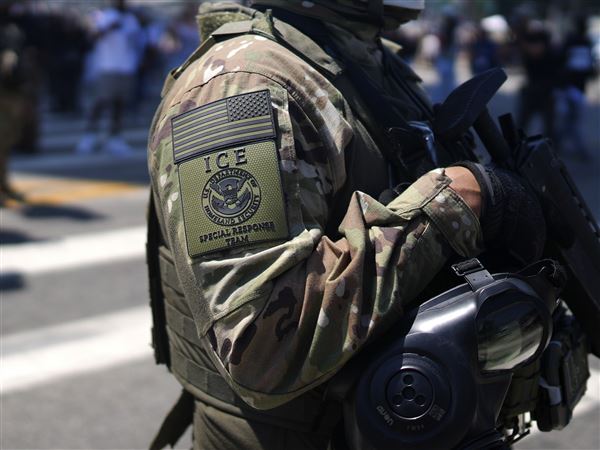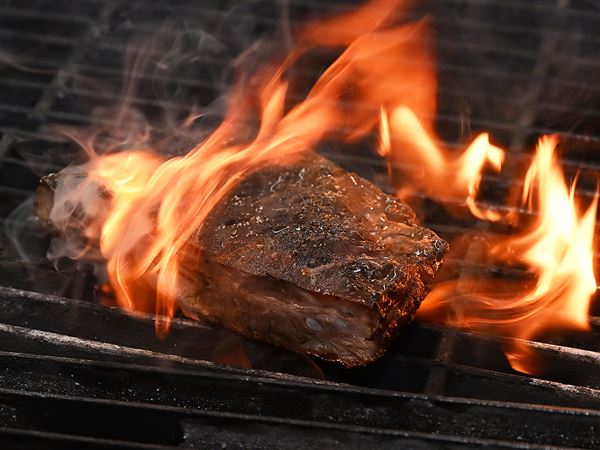Learning to grow your own vegetables and set aside seed to plant next year, to raise chickens, bake bread and make jam, to medicate yourself with aloe vera, knit a sweater, run a diesel engine on recycled cooking oil, collect rain- or well-water, make your log cabin energy self-sufficient -- to most of us these are innocent, even heart-warming, activities. To "preppers" these aren't pastimes; they are skills needed for the dark days ahead.
This subculture of Americans preparing for civilization's collapse covers a vast range of fears and extends the idea of being prepared, as it is usually understood in the context of hurricanes, earthquakes and other natural disasters, to all possible crises, local or systemic.
There are now at least three million preppers in the United States making detailed plans for surviving "the end of the world as we know it." Though there have not been many sociological studies of preppers, they seem to come from all backgrounds, but especially from among the young and heavily indebted suburbanites.
National Geographic's television channel has a reality show dedicated to prepping. Every month 300,000 people log on to SurvivalBlog.com, and many other websites have been created in the United States and Canada (Viking Preparedness, The Survival Mom, Ready Nutrition, Pioneer Living Survival Magazine, Prepper, The Suburban Prepper, The Prepper E-Book) and are now spreading in Latin America, Europe and Asia.
Blogs, books and radio shows have produced figureheads, such as the high priest of prepping, James Wesley Rawles, a former U.S. military intelligence officer and a conservative Christian whose books sell hundreds of thousands of copies. Mr. Rawles shrouds himself in mystery, preferring not to reveal the location of the "secret ranch" where he has moved his family to ensure their survival.
There's always someone predicting the end of the world, including millenarian sects. But, unlike the millenarians, the preppers are not expecting a specific disaster on a particular date. Anything could happen, at any time: a giant meteorite or another planet hitting the Earth, a massive volcanic eruption, a combination of ecological disasters, a nuclear war between China and the West, hyperinflation, the collapse of the world banking system, revolutionary insurrection, martial law -- Preppers aren't choosy.
Their opportunism means they can avoid post-apocalyptic blues -- an affliction suffered by Harold Camping, president of Family Radio, whose followers were disappointed not to witness the end of the world in October 2011, his last prediction. It also allows them to cast their nets wide: The preppers recruit paranoid conspiracy theorists, urban bobos, isolationist populists and ecologists. They raise awareness among those who just want to know what to do in a water shortage or power outage.
By imagining all possible scenarios, preppers herd materialist sheep towards Calvinist predestination that separates the "blessed," or the winners (recognizable by their active vigilance), from the "damned," or the losers (victims of their own shameful frivolity). Many churches are irritated by this aggressive competition and argue that material training for survival is worth little next to spiritual training for the salvation of the soul.
Unlike the hippies of the 1960s and 1970s and the survivalists of the 1990s, the preppers are not rejecting a way of life or defying a government they suspect of betraying them in favor of the elite of the New World Order. They claim to be just ordinary citizens seeking to inform themselves. Although rediscovering practical skills revives worthwhile traditions, online forums have two recurring themes that go a lot further: isolationism and preparation for armed resistance against the "unprepared," who are suspect as they may become looters.
Contributors to forums hosted by Joel Skousen, a former fighter pilot turned catastrophe commentator and "strategic relocation" specialist, discuss how to prepare to relocate when society collapses, when to leave the big cities (especially the more dangerous ones, infested with "zombie unemployed"), what to put in your "bug-out bag" (a 72-hour survival kit for use during evacuation from a disaster area), how to choose a safe haven in the United States with plenty of Christian neighbors and how to survive for six months in a "self-sufficient residence" or even a concrete pipe in the back garden. One couple boasted of having 50 years' worth of provisions and 25,000 rounds of ammunition. Another contributor explained how he keeps 1,000 tilapias (freshwater fish) in his swimming pool.
Some preppers wonder if, after the apocalypse, we will all have to become hunter-gatherers again, and they believe we must preserve knowledge essential for the rebuilding of civilization (how to weave, solder, secure a supply of clean water, self-medicate). How many horses and cows would each family need? The idea of the closed community, as depicted in M. Night Shyamalan's 2004 film "The Village," appeals to preppers -- though they probably prefer Roland Emmerich's "2012" or John Hillcoat's "The Road," which don't make the audience think too much.
The second-favorite prepper theme derives from a fear of others. Maps of "suspected terrorist activity" in the United States and around the world are available, as is information on how to build a gated community in a hurry and set up armed patrols in preparation for the arrival of hordes of unprepared, who will soon try to violate your sanctuary. What starts off as practical recognition of the need for a fire drill can end up as paranoid anticipation, just as bad as the disasters it is intended to guard against.
Yet most preppers are still consumers, as compulsive as those who empty the supermarket shelves before a holiday. In frantically stocking up on weapons, basic necessities and medicines (the three Bs: bullets, beans and Band-Aids), they replace one form of over-equipping with another. Their ideal of pioneer-like self-sufficiency is encumbered by clutter. Possibly the most extreme manifestation of this are the pallets of freeze-dried food (a nine-month supply for four people) that "emergency stockpile" specialists sell in quantities to the more pessimistic preppers.
Of course, like Boy Scouts, who are always prepared, good preppers should be able to make do: They should know how to use a potato to power a light bulb, how to make a spoon from cardboard or how to light a stove without matches. But to learn these skills, they need the paid services of TV experts -- more consuming. They may make their own soap, but they use ingredients and utensils (borax, sodium carbonate, a cheese grater) bought at the local store.
Anticipation of future disaster and how to survive it prevents people from thinking about what is happening here and now. Preppers do comment on greed in the financial sector and, in the United States, on the Second Amendment right to bear arms, but their individualist ideas of self-sufficiency and their instinct for flight mean they typically participate little in social or political action. They are unable to imagine civilization correcting course and, lost in their ideology of the struggle of all against all, cannot, for example, envision that a simple redistribution of wealth could be more effective than strategic relocation to avoid the horrors of economic calamity. They refuse to prepare for the possibility that the world will survive.
First Published: November 25, 2012, 5:00 a.m.














